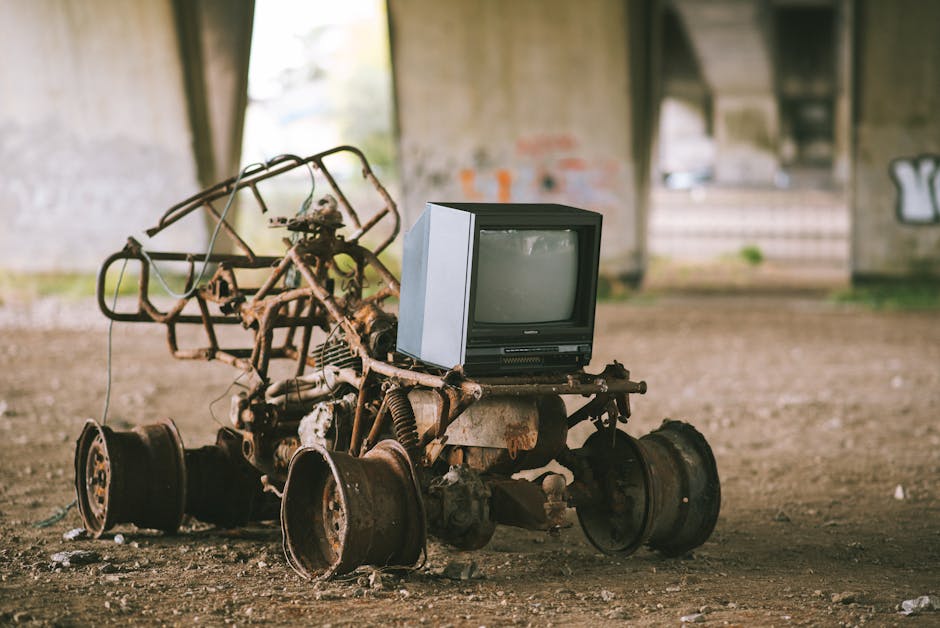Waste Reduction Tips for Small Businesses
Did you know that small businesses can significantly impact the environment? By reducing waste, you not only save money but also help the planet. In fact, the U.S. Small Business Administration reports that 30% of waste could be recycled or composted. Let’s look at simple strategies to cut down waste in your business.
Why Should Small Businesses Care About Waste Reduction?

Waste reduction isn’t just a trend; it’s a necessity. Every year, businesses generate tons of waste. This can lead to high disposal costs and a negative environmental footprint. In todays market, customers prefer eco-friendly companies. They want to support businesses that care.
By focusing on waste reduction, you can:
- Save money on disposal fees.
- Enhance your brand image.
- Attract eco-conscious customers.
- Comply with regulations more easily.
How Can Small Businesses Start Reducing Waste?

Starting waste reduction may seem daunting. But small steps can lead to big changes. Here are some practical tips to get you started.
What Are the Best Practices for Reducing Paper Waste?

Paper waste is common in many businesses. However, you can easily cut back.
- Go Digital: Use cloud storage to keep documents organized. Programs like Google Drive or Dropbox can replace physical files.
- Ditch the Printer: Only print when necessary. If you must print, use both sides of the paper.
- Use E-Receipts: Offer digital receipts to customers instead of paper ones. Most people appreciate the convenience.
How Can Small Businesses Reduce Food Waste?

If your business involves food, managing waste is crucial.
- Smart Inventory Management: Order only what you need. Track inventory to avoid over-purchasing.
- Donate Unsold Food: Partner with local charities to donate leftovers. This helps those in need while cutting waste.
- Composting: Start a compost bin for organic waste. This can reduce landfill contributions significantly.
What About Packaging Waste?
Packaging can generate a lot of waste. Heres how to minimize it:
- Choose Eco-Friendly Materials: Opt for biodegradable or recyclable packaging. Look for suppliers that offer sustainable options.
- Reduce Packaging: Use the smallest packaging necessary for your products. This cuts down on waste and shipping costs.
- Encourage Reuse: Offer incentives for customers who bring their own bags or containers.
How Can Small Businesses Manage E-Waste?
Technology is essential, but it can also create e-waste. Here are some tips to handle it:
- Repair Before Replace: Fix broken equipment instead of buying new. This extends the life of your devices.
- Recycling Programs: Use e-waste recycling programs to dispose of old electronics responsibly.
- Donate Functional Equipment: If your older tech is still working, consider donating it to schools or nonprofits.
What Are the Benefits of Employee Engagement in Waste Reduction?
Your team plays a vital role in reducing waste. Engaging them can make a significant difference.
- Awareness Campaigns: Run campaigns to educate staff about the importance of waste reduction.
- Incentivize Participation: Offer rewards for employees who suggest waste-reducing ideas.
- Set Goals Together: Create waste reduction goals as a team. Celebrate achievements to keep morale high.
How to Measure Your Waste Reduction Efforts?
To see if your efforts are paying off, you need to track your progress. Heres how:
- Conduct a Waste Audit: Analyze what your business throws away. This can highlight areas for improvement.
- Track Metrics: Keep records of waste volume, recycling rates, and costs associated with disposal.
- Adjust Strategies: Use your findings to tweak your waste reduction strategies. Continual improvement is key.
What Are Some Common Misconceptions About Waste Reduction?
Many people have misconceptions about waste reduction. Lets clarify them:
- Waste Reduction is Expensive: While initial costs may vary, reducing waste often leads to long-term savings.
- it’s Only for Large Companies: Small businesses can have a big impact too. Every effort counts.
- It Requires Major Changes: Small, incremental changes can lead to significant waste reduction.
How Can You Get Started Today?
Ready to make a difference? Here are some actionable steps:
- Start with a waste audit this week.
- Set a goal to reduce paper usage by 20% in the next month.
- Research local charities and set up a food donation program.
Every little bit helps. By reducing waste, you not only save money but also contribute to a healthier planet.
For more detailed strategies, check out the U.S. Environmental Protection Agency’s Waste Reduction Guide.
Conclusion: Small Changes, Big Impact
Waste reduction in small businesses is not just a trend; it’s a responsibility. By implementing these tips, you can save money and help the environment. Start with small steps, and soon you’ll see the bigger picture. Every effort counts, and together, we can make a significant impact!


